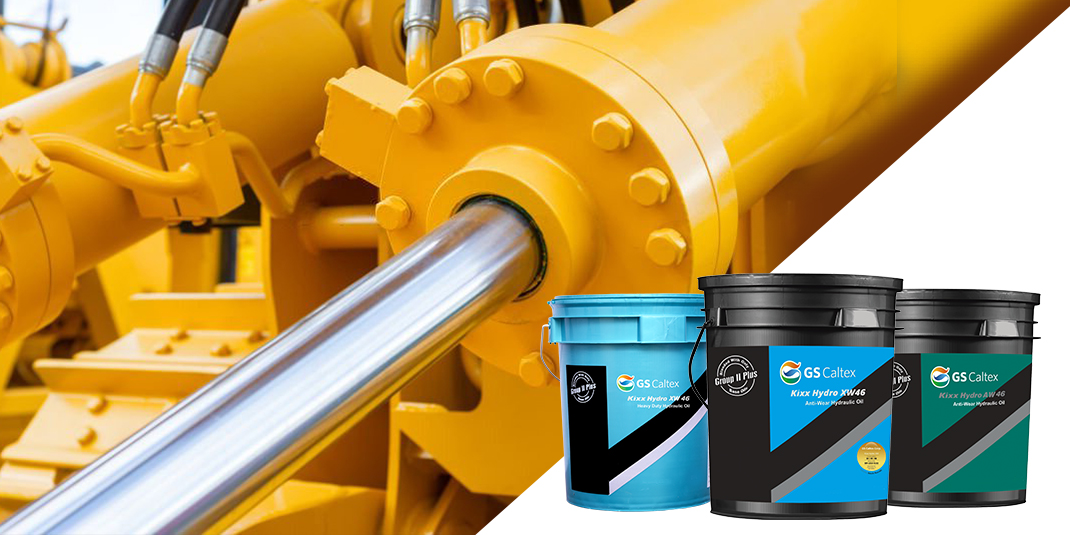
Hydraulic systems play a crucial role in a wide range of industries, powering machinery and equipment with the force of pressurized fluid. To ensure optimal performance and longevity of hydraulic systems, the selection of the right hydraulic fluid is paramount. In this blog, we will delve into the fundamentals of hydraulic systems, explore the importance of fluid selection, and highlight the role of GS Caltex India in providing superior hydraulic fluids.
Understanding Hydraulic Systems:
Hydraulic systems utilize a fluid medium, typically hydraulic oil or fluid, to transfer power and generate mechanical force. These systems consist of various components, including pumps, valves, actuators, and hydraulic cylinders. The hydraulic fluid is pressurized by a pump, and it flows through the system, transmitting force and enabling the operation of machinery with precision and efficiency.
The Importance of Hydraulic Fluid Selection:
Selecting the appropriate hydraulic fluid is crucial for the optimal functioning of hydraulic systems. The right fluid not only lubricates the components but also provides corrosion protection, heat dissipation, and contamination control. It must have the right viscosity, chemical stability, and performance characteristics to withstand the demanding conditions within hydraulic systems.
GS Caltex India's Role in Hydraulic Fluids:
GS Caltex India is a trusted provider of high-quality lubricants and hydraulic fluids that cater to diverse industrial needs. Their range of hydraulic fluids is meticulously formulated and engineered to deliver exceptional performance, durability, and efficiency. GS Caltex India understands the unique requirements of hydraulic systems and offers a comprehensive portfolio of hydraulic fluids that meet or exceed industry standards.
Benefits of GS Caltex India Hydraulic Fluids:
1. Superior Lubrication:
GS Caltex India hydraulic fluids provide excellent lubrication, reducing friction and wear on system components. This helps extend the lifespan of hydraulic equipment and reduces maintenance costs.
2. Excellent Thermal Stability:
Hydraulic systems generate heat during operation. GS Caltex India hydraulic fluids are formulated to withstand high temperatures, maintaining their performance and protecting system components from thermal stress.
3. Effective Contamination Control:
Contaminants, such as dirt, moisture, and air, can negatively impact hydraulic system performance. GS Caltex India hydraulic fluids have superior filtration properties and excellent resistance to foaming, ensuring clean and efficient operation.
4. Corrosion Protection:
Hydraulic systems can be exposed to moisture and other corrosive elements. GS Caltex India hydraulic fluids are fortified with corrosion inhibitors, offering reliable protection against rust and corrosion, thus extending equipment life.
5. Environmental Considerations:
GS Caltex India is committed to sustainability. Their hydraulic fluids are designed with low-toxicity additives and are formulated to meet or exceed environmental regulations, ensuring minimal impact on the environment.
Conclusion
Selecting the right hydraulic fluid is essential for the efficient and reliable operation of hydraulic systems. GS Caltex India, with its expertise and dedication to quality, provides a wide range of high-performance hydraulic fluids that offer superior lubrication, thermal stability, contamination control, and corrosion protection. By choosing GS Caltex India hydraulic fluids, industries can optimize the performance and durability of their hydraulic systems, reduce maintenance costs, and contribute to a greener future. Trust GS Caltex India to empower your hydraulic systems with exceptional hydraulic fluid solutions.
Frequently Asked Question's
Q1: Why is hydraulic fluid important?
Hydraulic fluid is essential because it transfers power and motion within hydraulic systems. It acts as a medium to transmit forces, lubricates moving parts, dissipates heat, and protects components from wear and corrosion. Choosing the right hydraulic fluid is crucial for optimal system performance and reliability.
Q2: What are the main types of hydraulic fluids?
There are various types of hydraulic fluids available, including mineral-based oils, synthetic oils, and water-based fluids. Each type has its own advantages and is suited for specific applications. Synthetic fluids, such as polyalphaolefin (PAO) or phosphate ester-based oils, are gaining popularity due to their superior performance in extreme conditions.
Q3: How do I select the right hydraulic fluid for my application?
To select the appropriate hydraulic fluid, consider factors such as the operating temperature range, system pressure, environmental conditions, component compatibility, and manufacturer recommendations. Consulting with hydraulic fluid suppliers or industry experts can help you make an informed decision.
Q4: Can I mix different hydraulic fluids?
It is generally not recommended to mix different types of hydraulic fluids. Mixing incompatible fluids can result in poor system performance, seal degradation, component damage, and reduced fluid life. Always consult the manufacturer's recommendations and guidelines before changing or topping up hydraulic fluids.
Q5: How often should hydraulic fluid be changed?
The frequency of hydraulic fluid changes depends on several factors, including operating conditions, system cleanliness, and the type of hydraulic fluid used. Regular oil analysis, monitoring fluid condition, and following the manufacturer's recommended maintenance schedule will help determine the optimal fluid change interval.
Q6: What are the consequences of using the wrong hydraulic fluid?
Using the wrong hydraulic fluid can lead to poor system performance, reduced efficiency, increased wear and tear on components, seal failures, leaks, and even catastrophic system failure. It is crucial to ensure that the selected hydraulic fluid meets the specifications and requirements of your system.
Q7: How can I maintain the hydraulic fluid and system reliability?
To maintain hydraulic fluid and system reliability, follow these best practices: a. Regularly monitor fluid levels and condition. b. Keep the system clean and free from contaminants. c. Conduct routine maintenance and fluid analysis. d. Follow manufacturer guidelines for fluid change and filtration. e. Train operators on proper system operation and maintenance procedures.
Q8: Where can I find reliable hydraulic fluid suppliers?
Reliable hydraulic fluid suppliers can be found through various channels, such as industrial equipment distributors, authorized dealers of hydraulic system components, or directly contacting fluid manufacturers. Additionally, online platforms and industry trade shows can provide valuable information and connections with reputable suppliers.